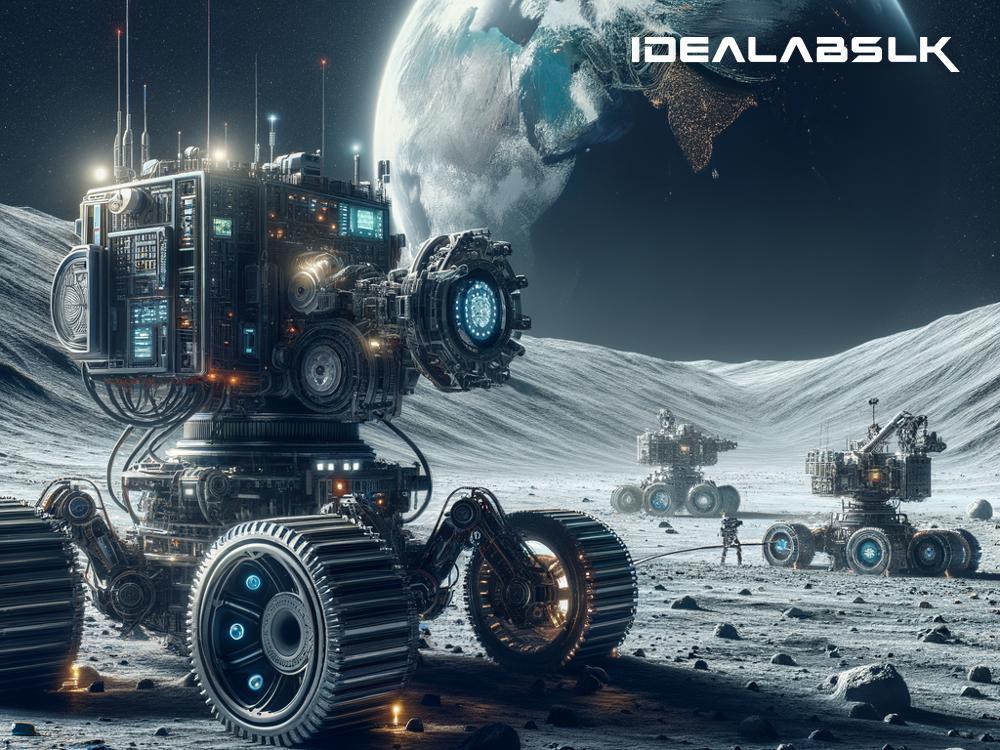How the Lunar Mining Industry Will Reshape the Future of Space Economics by 2024
As we stand on the brink of a new era in space exploration, the prospect of lunar mining has emerged as a thrilling frontier. It's not just about planting flags or leaving footprints on the moon anymore. It's about leveraging lunar resources to revolutionize how we think about space economics. By 2024, the burgeoning lunar mining industry is expected to significantly reshape the future of space exploration, and here's how.
A Leap Towards Self-Sufficiency in Space
Until now, space missions have been wholly dependent on Earth for supplies. Everything, from water to rocket fuel, must be painstakingly transported from Earth to space at exorbitant costs. Imagine if we could source these essentials directly from the moon – it would dramatically slash costs and extend the reach of human exploration.
The moon, as it turns out, is a treasure trove waiting to be unlocked. It holds vast reserves of water ice, particularly at its poles. This water can not only support life but can also be split into hydrogen and oxygen – the key components of rocket fuel. By 2024, lunar mining could start tapping into these resources, paving the way for a sustainable presence in space and deeper voyages into the cosmos.
Stimulating an Off-Earth Economy
The lunar mining industry is poised to ignite the engines of an off-Earth economy. Currently, the space economy is predominantly about satellite communications. However, with the advent of lunar mining, a whole new economic realm is on the horizon.
Mining operations on the moon could yield precious minerals and metals that are scarce on Earth. Furthermore, the moon's lower gravity could make it a cost-effective launchpad for missions to Mars and beyond. Think of the moon as a giant gas station in space – a place where future explorers and cargo ships refuel and resupply.
By 2024, the first steps toward establishing this lunar economy could see partnerships between governments and private companies flourish. Companies specializing in robotics, mining equipment, and space logistics would find unprecedented opportunities, widening the space industry's scope beyond satellites and space tourism.
Fostering International Collaboration and Competition
The race to exploit lunar resources is not just about economic gains; it's also about establishing presence and leadership in space. As countries realize the strategic importance of the moon, international collaborations as well as competition are likely to intensify.
On one hand, this competition could spur rapid advancements in space technology and mining techniques. On the other, it highlights the need for frameworks and agreements to ensure responsible exploitation of lunar resources. By 2024, we might see more concrete international guidelines governing lunar activities, which could serve as a blueprint for future endeavors on other celestial bodies.
Environmental Considerations
The lunar mining industry also brings to the forefront the issue of environmental stewardship in space. As we venture into extracting lunar resources, the principles of sustainable and responsible mining must be at the heart of these efforts. Preserving the pristine nature of the moon, preventing contamination, and minimizing disruptions to its environment will be critical.
By 2024, pioneering lunar mining missions could set precedents in how we balance economic aspirations with environmental responsibilities in space. These early endeavors will not only test the feasibility of lunar mining but also the commitment of all stakeholders to uphold the highest standards of sustainability.
Conclusion
The upcoming transformation of the lunar landscape into a bustling hub of mining activity is more than just science fiction; it's a palpable reality that's taking shape. By 2024, the lunar mining industry is expected to be in its infancy, laying the groundwork for a future where the moon plays a central role in sustaining human endeavors in space.
As we embark on this exciting journey, it's essential to approach lunar mining with a spirit of innovation, collaboration, and responsibility. The decisions and actions taken in these early years will set the course for the future of space economics, opening up a universe of possibilities while ensuring that the legacy we leave behind is one of respect and reverence for the cosmos that cradles us.

